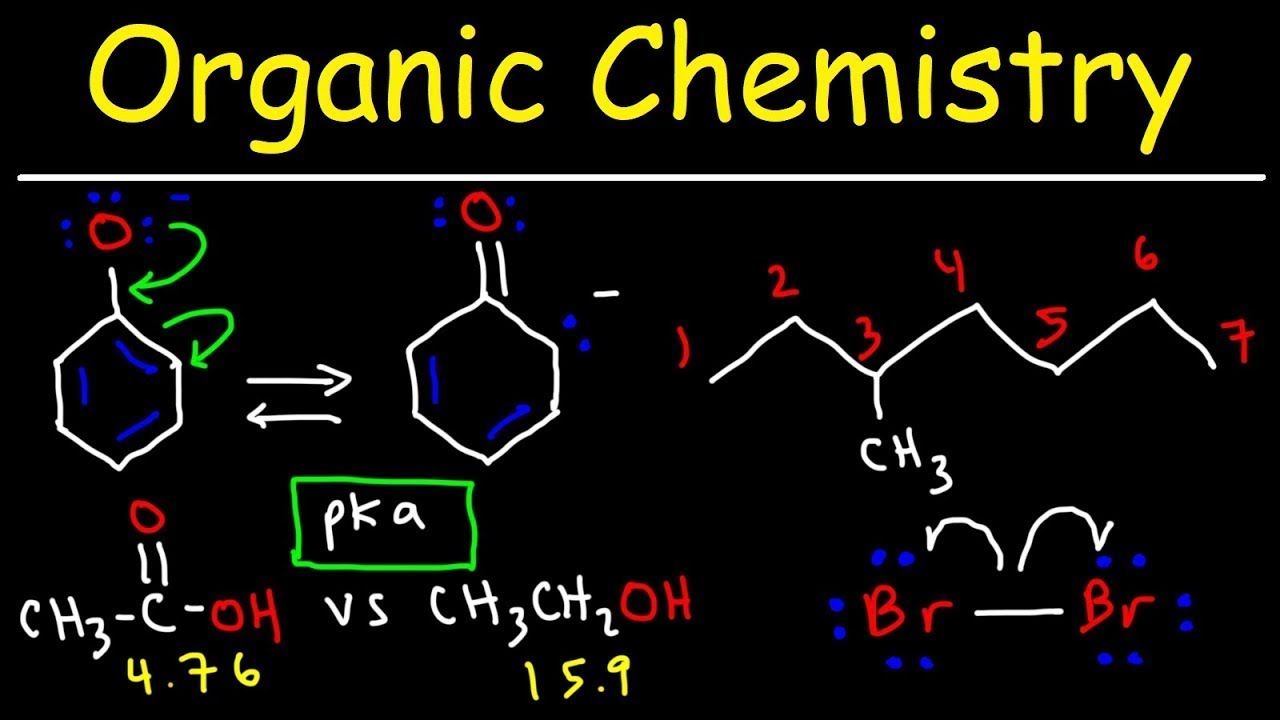
Welcome to Common Sense Organic Chemistry, your ultimate destination for mastering the intricate and fascinating world of organic chemistry. Whether you're a student striving for excellence in your courses, a professional looking to refresh your knowledge, or simply a curious mind passionate about chemistry, our platform is designed to cater to your needs.
Who We Are
At Common Sense Organic Chemistry, we believe that with the right approach and resources, anyone can understand and excel in organic chemistry. Our mission is to demystify this challenging subject by breaking down complex concepts into understandable, bite-sized pieces. We offer a wide range of services and resources tailored to different learning styles and levels of expertise, ensuring that every learner finds the support they need.
What We Offer
Personalized Tutoring Sessions
Get individualized attention from our expert tutors who are passionate about organic chemistry. Our personalized tutoring sessions are designed to address your specific challenges and questions, providing targeted help that is aligned with your learning pace and style. Whether you need help with reaction mechanisms, stereochemistry, or exam preparation, our tutors are here to guide you every step of the way.
Comprehensive Course Reviews
Our comprehensive course reviews provide in-depth explanations and summaries of key topics in organic chemistry. These reviews are an excellent resource for students looking to reinforce their understanding, catch up on missed material, or prepare for exams. Each review includes detailed notes, diagrams, and practice problems with solutions, helping you master the material effectively.
Interactive Online Workshops
Join our interactive online workshops that cover a wide range of topics in organic chemistry. These workshops are designed to be engaging and hands-on, allowing you to ask questions, solve problems, and interact with peers and instructors in real-time. Whether you're tackling foundational concepts or advanced topics, our workshops provide an immersive learning experience.
Customized Study Plans
Achieve your academic goals with a personalized study plan tailored to your needs. Our customized study plans consider your current knowledge level, learning style, and schedule, providing you with a structured roadmap for success. Stay organized and focused as you navigate through each topic with a plan that guides your learning journey step-by-step.
Lab Report Assistance
Writing lab reports can be a daunting task, but we're here to help. Our lab report assistance service offers guidance on how to write clear, concise, and well-structured lab reports. We provide tips on data analysis, presentation, and interpretation, ensuring that your reports meet academic standards and effectively communicate your findings.
Exam Preparation Bootcamps
Prepare for your organic chemistry exams with our intensive bootcamps. These bootcamps focus on reviewing key concepts, practicing exam-style questions, and developing effective test-taking strategies. Gain the confidence and skills you need to excel in your exams with our targeted preparation sessions.
Why Choose Us?
Expertise and Experience
Our team of tutors and instructors are highly qualified professionals with extensive experience in teaching and research in organic chemistry. They bring a wealth of knowledge and a passion for teaching, ensuring that you receive the highest quality of instruction and support.
Engaging and Effective Learning
We believe that learning should be both effective and enjoyable. Our resources are designed to be engaging, interactive, and easy to understand. We use a variety of teaching methods, including visual aids, hands-on activities, and real-world examples, to make complex concepts accessible and interesting.
Comprehensive Support
From one-on-one tutoring to group workshops, we offer a range of services to support your learning. Our comprehensive approach ensures that you have access to the resources and guidance you need at every stage of your learning journey. Whether you're struggling with a specific topic or preparing for an important exam, we're here to help you succeed.
Flexible and Convenient
We understand that everyone has different schedules and commitments. That's why we offer flexible learning options that fit your lifestyle. Access our resources online anytime, anywhere, and choose from a variety of learning formats to find what works best for you.
Join Our Community
At Common Sense Organic Chemistry, we're more than just a learning platform; we're a community of learners and educators passionate about organic chemistry. Join our community to connect with fellow students, share your experiences, and support each other on your learning journey. Stay updated with the latest news, tips, and resources by following our blog and social media channels.
Get Started Today
Ready to take your understanding of organic chemistry to the next level? Explore our website to learn more about our services and resources. Sign up for a free consultation to discuss your learning needs and goals, and discover how Common Sense Organic Chemistry can help you achieve success.
At Common Sense Organic Chemistry, we're dedicated to making organic chemistry accessible, understandable, and enjoyable for everyone. With the right support and resources, you can conquer the challenges of this subject and unlock your full potential. Join us and discover the difference that common sense can make in your learning journey.
Our Services
Personalized Tutoring Sessions
Get one-on-one tutoring sessions tailored to your specific needs and learning style. Our expert tutors can help you understand complex concepts, prepare for exams, and tackle difficult assignments. Whether you need ongoing support or just a single session to clarify a topic, we’re here to help you succeed in organic chemistry.
Comprehensive Course Reviews
Our comprehensive course reviews provide detailed explanations and summaries of key topics in organic chemistry. These reviews are perfect for exam preparation, catching up on missed material, or reinforcing your understanding of course content. Each review includes practice problems and solutions to help you master the material.
Interactive Online Workshops
Participate in our interactive online workshops that cover various aspects of organic chemistry, from fundamental principles to advanced topics. These workshops are designed to be engaging and hands-on, providing you with the opportunity to ask questions, solve problems, and collaborate with peers in real-time.
Customized Study Plans
Achieve your academic goals with a customized study plan designed specifically for you. Our study plans take into account your current knowledge level, learning style, and schedule to create a roadmap for success in organic chemistry. Stay organized and focused with a plan that guides you through each topic step-by-step.
Lab Report Assistance
Struggling with lab reports? Our lab report assistance service provides guidance on how to write clear, concise, and well-structured lab reports. We offer tips on data analysis, presentation, and interpretation, ensuring that your reports meet academic standards and effectively communicate your findings.
Exam Preparation Bootcamps
Prepare for your organic chemistry exams with our intensive exam preparation bootcamps. These bootcamps focus on reviewing key concepts, practicing exam-style questions, and developing effective test-taking strategies. Gain the confidence and skills you need to excel in your exams with our targeted preparation sessions.
News and Blog

The Church Chair with Kneeler: A Blend of Comfort and Devotion
In the realm of ecclesiastical architecture and furniture design, the church cha...
Read more
MCAT and Medical School and Organic Chemistry
The MCAT and Medical School Go to any university's Natural Sciences office and y...
Read more
Ready to conquer organic chemistry with confidence? Explore our services and resources now to start your journey towards success! Join our community of learners and unlock your full potential in organic chemistry. Let's embark on this exciting journey together. Get started today!
Read More